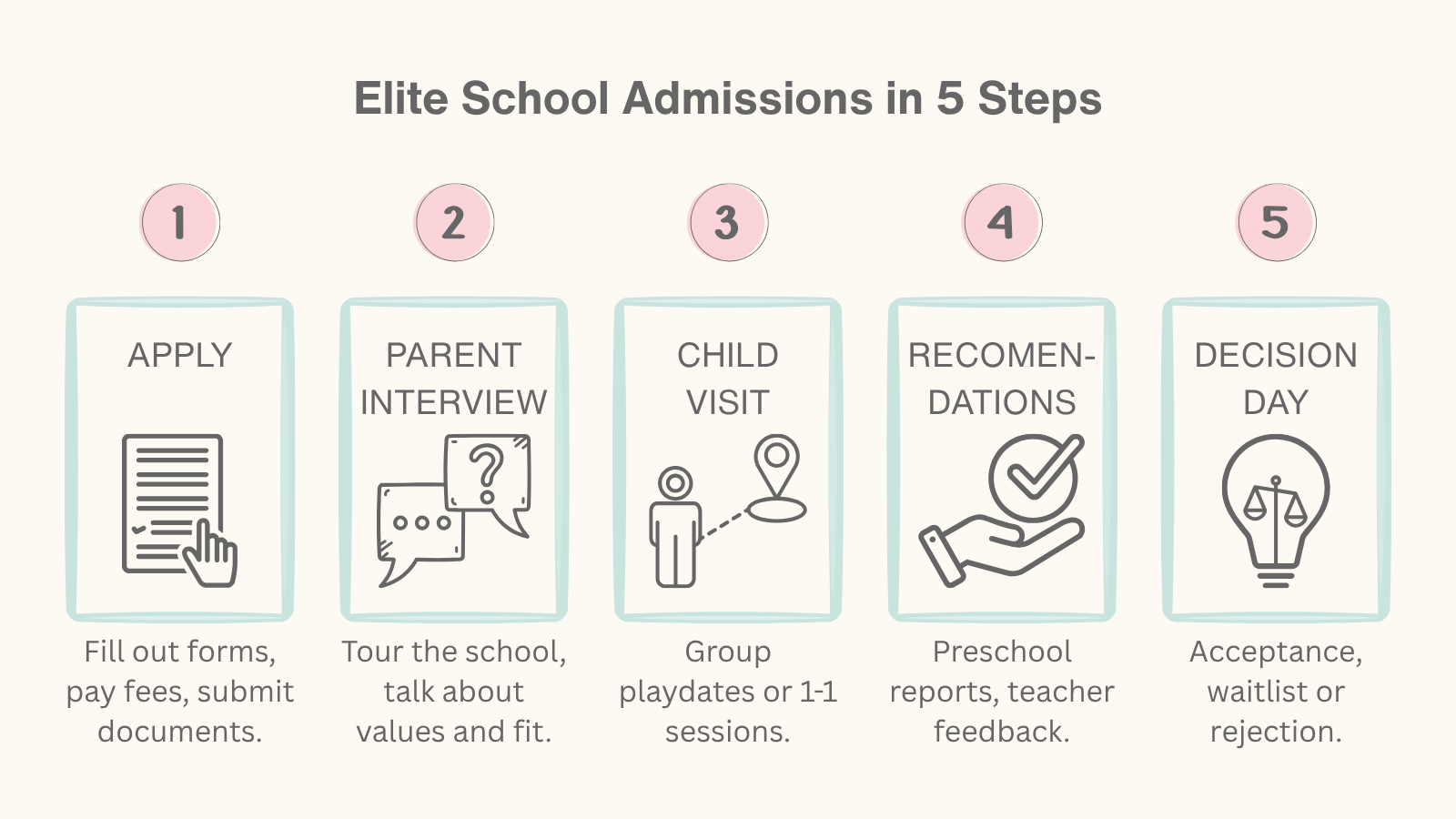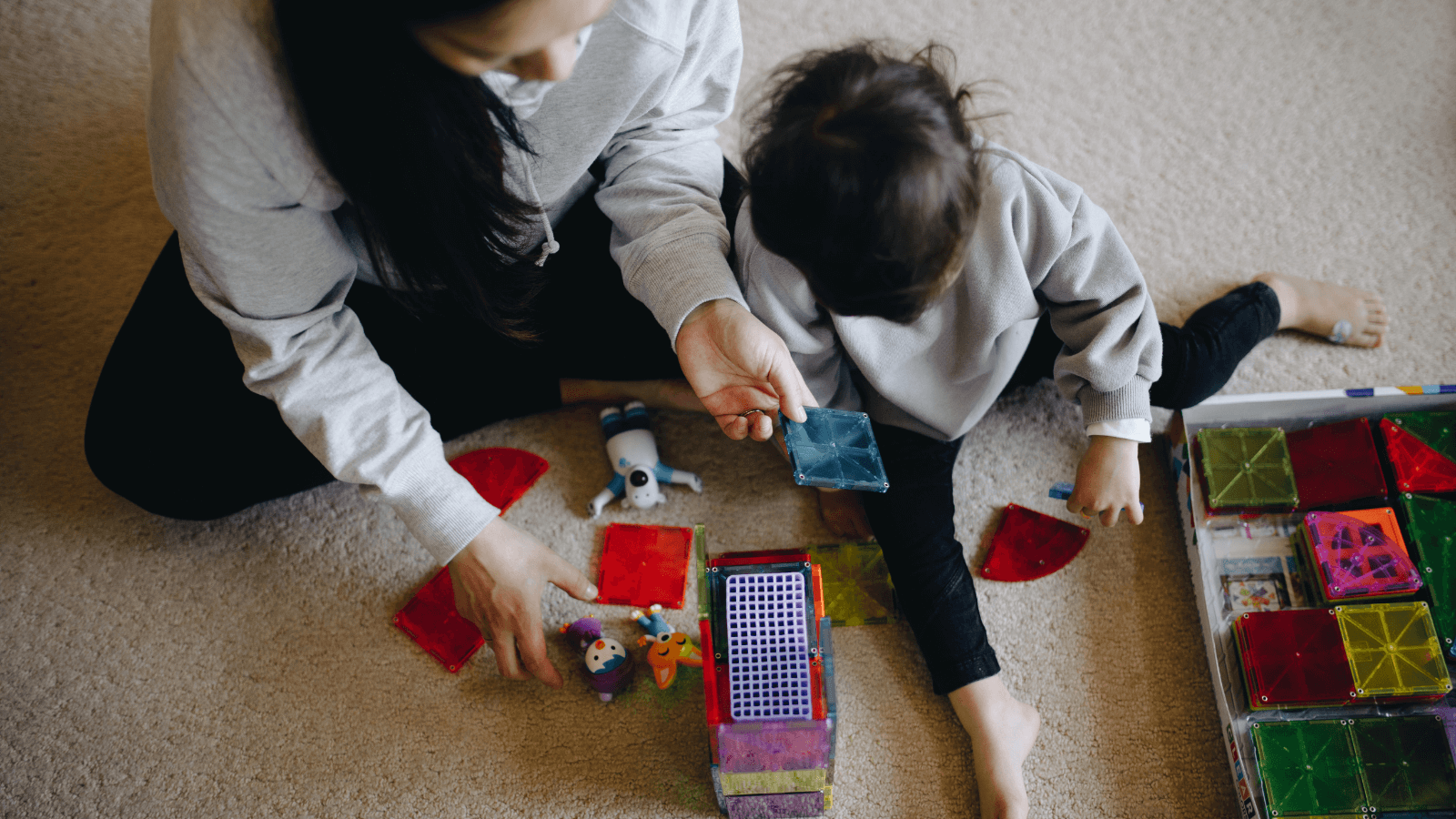
Politeness and Privilege
Listen to This Post
Polished For The Playground
In New York’s most elite kindergartens, eye contact can mean everything. A firm handshake, a confident “Hello,” and the ability to wait patiently in a small group can be the difference between acceptance and rejection.
These aren't just social niceties, they're admissions criteria. In 2025, a wave of high-income families is investing in etiquette not as a moral good, but as a strategic advantage. And behind every poised five-year-old is often a well-rehearsed script shaped by nannies, tutors, and parents.
These steps may seem standard, but what schools are truly assessing goes far beyond paperwork. During child visits, educators quietly watch for confidence, emotional regulation, and social ease.
Can a child separate from their caregiver without distress? Do they make eye contact? Take turns? Speak when spoken to? These behaviors, seemingly small, are treated as signals of future success. In many ways, children are being evaluated not just for readiness to learn, but for readiness to belong.

Class, Culture, and Manners
These expectations don’t happen by accident, they’re cultivated. According to sociologist Annette Lareau in her book Unequal Childhoods, upper-class parents use "concerted cultivation", a parenting approach that emphasizes language, confidence, and structured enrichment.
In this context, manners become a kind of cultural capital: the ability to self-advocate, read a room, and move comfortably through adult-driven environments.

Caregivers on the Frontlines of Etiquette
In many high-income households, social skills aren't left to chance; they’re cultivated with intention. Nannies, tutors, and governesses don’t simply supervise; they observe, guide, and gently correct.
They teach the small things that matter: how to wait without demanding, how to listen without interrupting, how to respond with calmness rather than frustration. These lessons take time, and time, in this case, is paid for.
Families invest in experienced caregivers with degrees, training, and a deep understanding of childhood development.
These professionals instill emotional regulation, model respectful behavior, and help children feel confident in unfamiliar settings. It isn’t parenting alone; it’s a support system built with expertise.

And as expectations rise, the role of the caregiver evolves. Social fluency, leadership, and emotional maturity have become part of the job description, even for toddlers.
In high-income households, caregivers are hired for more than supervision; they’re chosen for their ability to model polished behavior, guide early academics, and create calm, emotionally attuned environments.
By 2025, job listings reflect this shift. Phrases like “bring a positive attitude,” “set boundaries,” and “support sibling dynamics with confidence” appear alongside requests for degrees in education, fluency in multiple languages, and training in Montessori or Reggio Emilia approaches.
Some families even expect their caregiver to develop curriculum, coordinate with teachers, and ensure consistency during international travel.
The Long Game
Because a child who enters kindergarten at an elite school isn’t just starting school, they’re entering a world of opportunity that others can only dream of.
These institutions don’t just teach; they position. Schools like Trinity, Collegiate, and Brearley consistently send 36-40% of their graduates to Ivy League universities, according to publicly available feeder school data.
This pipeline is powerful: nearly four in ten alumni from these feeder schools end up at the nation’s most elite colleges. That’s not coincidence, it’s structure. When parents invest in shaping social fluency so early, they’re unlocking doors that echo through an entire lifetime.
Curious which schools open those doors? Explore top college-prep private high schools in New York.

These schools don’t just educate, they encode a child with the language, posture, and confidence of the elite.
A polished thank-you note, the ability to sit still through an interview, or the instinct to say “excuse me” at just the right moment, these are not just manners, but markers of cultural fluency signaling a child’s readiness to navigate power and privilege.
For families who can afford this path, success isn’t accidental. It’s engineered early, carefully, and long before most children even know what Harvard is.
What Manners Can’t Fix
These children grow up in a carefully crafted world, with tutors to explain, nannies to guide, and adults who make sure they’re heard. They travel often, take enrichment classes, and are praised not just for who they are, but how well they try. Every step of the way, someone is there to help them shine.
By the time they reach adulthood, many are poised to lead: running companies, shaping policy, influencing culture. But polished doesn’t mean prepared for everything. Most have never had to share a bedroom, miss a field trip, or be the kid whose project didn’t stand out because no one could help.
They’ve rarely had to speak up on their own or face a moment when no one else stepped in. Raised to succeed, not to struggle, they learn confidence early, but often miss the lessons that come from going without.

Lessons like understanding that success isn’t just how far you go, but how far you’ve come from where you started. That not everyone begins at the same line. Some are born ahead; others spend years catching up.
The ability to recognize that difference isn’t just awareness, it’s the root of empathy. And when leadership comes from lives that have only known support, not scarcity, we risk building a world where performance is rewarded, but empathy is optional.
What’s your favorite way to teach empathy?
Current Results:
More Parent Perspective

Parent Perspective
Buying Back Time: Is Paying for Childcare Really Worth It?
Would you work just to pay the nanny? For many parents, it feels like their entire paycheck disappears into childcare. But the hidden trade‑offs, health insurance, career momentum, and even sanity, tell a bigger story.

Parent Perspective
Inviting a Stranger into Your Home
Sometimes you’re not only bringing home a new baby, but also a night nurse or a live-in nanny. Creating a whole new kind of family dynamic, almost overnight.

Parent Perspective
The Nanny Date
Why hiring a nanny is more like building a relationship than buying a service. When chemistry, communication, and boundaries matter more than ticking boxes.
Polite isn't enough. Raising kids with privilege means teaching them to see beyond it. Check out our Empathy in Privilege, a free guide with 7 everyday ways to help children recognize their advantages, practice gratitude, and build meaningful empathy that goes deeper than “Please” and “Thank you.”

Written by Sylwia Glinska
Founder of Bottles & Bytes • Nanny, Newborn Care Specialist & Childcare Consultant
Get To Know Me